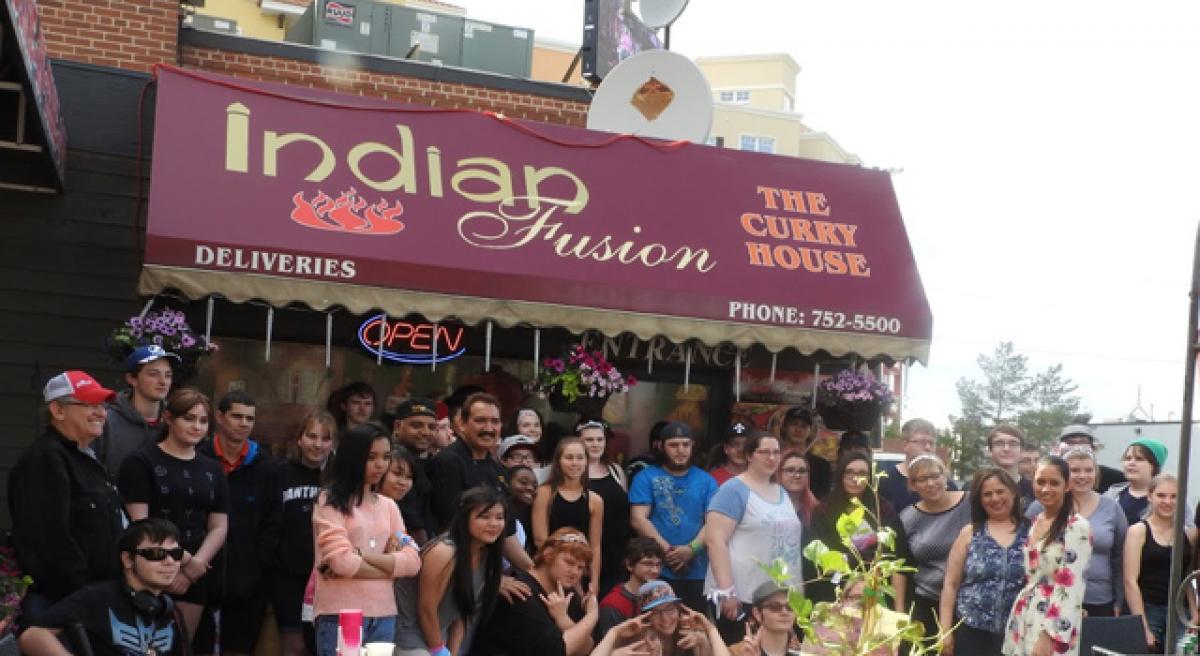Live
- BGT 2024-25: Shubman Gill suffers left-hand injury in training ahead of Perth Test
- Slur against Kumaraswamy wrong, Minister Zameer will be corrected: K’taka Cong
- Australian towns ordered to evacuate amid bushfire threat
- BJP backs LG's crackdown on illegal immigrants in Delhi
- AMR a global health threat, requires urgent action via one health approach: Anupriya Patel
- BJP planning big communal clash; we will expose them after Maha polls, says K’taka DyCM
- Sharad Pawar makes a soul-stirring plea 'to regain the glory of progressive Maharashtra'
- Seven soldiers killed in attack on Pak military camp in Balochistan
- ICC announces 2025 Men’s Champions Trophy tour to begin in Islamabad
- Americans increasingly vote along class lines, not racial ones: Report
Just In

American novelist Herman Melville, best-known for the magnum opus ‘Moby Dick’, wrote in his diptych ‘Poor Man’s Pudding and Rich Man’s Crumbs’, “Of all the preposterous assumptions of humanity, nothing exceeds the criticisms made of the habits of the poor by the well-housed, well-warmed, and well-fed.”
American novelist Herman Melville, best-known for the magnum opus ‘Moby Dick’, wrote in his diptych ‘Poor Man’s Pudding and Rich Man’s Crumbs’, “Of all the preposterous assumptions of humanity, nothing exceeds the criticisms made of the habits of the poor by the well-housed, well-warmed, and well-fed.”
On any “normal” day, finding a hungry homeless person digging through one’s trash for food is (sadly) a cringe-worthy sight for the majority of us. However, in 2009, when Canadian-Indian Prakash Chhibber found a group of poor people looking through his restaurant’s garbage bin for the same, he invited them in for a free meal.
On an average, Canadian-Indian restaurant owner Prakash Chhibber feeds around 30 people in his restaurant for free, on a daily basis, apart from the several organisations to which he donates food. What makes him tick – he speaks about his own rendezvous with hunger and his initiative to feed the poor, in an exclusive interview
Seven years later, the restaurant ‘Indian Fusion’ in Edmonton, Alberta, Canada is known for providing free meals to anyone who is hungry and cannot pay. Prakash serves the same food to his patrons and the non-paying guests (as he calls them); a symbol of his non-judgmental generosity and humanitarian spirit.
The fete goes beyond the good-hearted act of sharing leftovers with the hungry. Prakash’s endeavour is a delegacy of equality – of bringing the rich, poor and everyone in between together at the table and having a meal.
Why do you give free meals to people?
There is no specific reason but just to mention few... I have seen enough hunger in the past because of my accident three months after my marriage in 1992. I was bedridden for over two years, which led to a loss of a job. Means were few and that was when I experienced what hunger feels like.
And, we have a very hard working and caring family. We don’t believe in collecting money; it’s our responsibility to give back to the community. We all feel very humble and proud people to acknowledge that an Indian family is doing something in a foreign country.
How many people do you feed for free per day?
Every day is different. Sometimes, we are fortunate enough to have over 25-30 people, while some days are a little slow where we serve anywhere from 10-15 people.
We supply free food to many organisations, schools, fundraisers functions, charitable organisations, victims of natural disasters or if we get a request from anybody for the humanitarian cause. Putting all the numbers of meals’ donation together, it reaches up to 1,200-1,500 units per month. When we started about two and a half years ago, it was only 20-30 meals a month.
Do you check if a person is genuinely poor?
Any person is welcome; we do not ask them for any proof. A lot of people have a good background and some of them are educated but unfortunately for some reasons lost jobs, are sick or injured or have no support. So, we feed any hungry person.
Do the poor people come on a regular basis?
I put a sign on the back door of my restaurant prominently displaying the statement: Dear friends, if you are hungry and have no money to pay, just ring the bell below or come in for a free meal box/coffee anytime. Since we have put up the sign every day we have lots of new people coming with the regular ones.
How is your business going on?
It is a small family run establishment; the smallest Indian restaurant in the city where we serve Indian, Fijian, and Wild Game cuisine. We have had the restaurant since the spring of 2009. By the grace of God, business is good since we do not work just for money; we have a beautiful family life so we are able to pay our bills and I am happy to look after my family and employees.
What does your family say about your endeavour?
I am married to Chanchal Chhibber. I have a daughter Vaishnavi (20 years) and a son Dhrupad Chhibber (18 years). Both go to university and my family volunteers together. I could only do whatever little bit I am doing because of my family and my employees’ support. We all love it!
Any plans to come back to India?
I did my schooling in Delhi and also worked as an apprentice in the hotel industry. I moved to Canada in 2005. Now we are Canadian citizens and proud Indians at heart. Our roots are in India so we do visit from time to time. It’s a small world and people have the ability to make any place their home.
By: Navin Pivhal

© 2024 Hyderabad Media House Limited/The Hans India. All rights reserved. Powered by hocalwire.com







